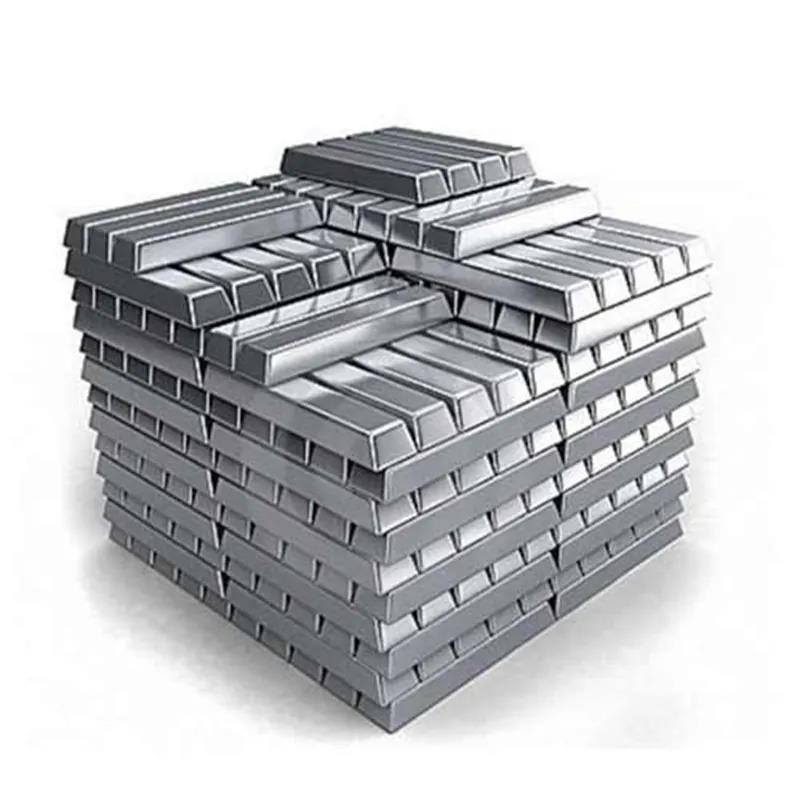
Product Description
Plant Overview
We possess 12 state-of-the-art aluminum ingot production lines, each equipped with the most advanced production equipment and automated control systems. With efficient production processes and rigorous quality monitoring, our annual output reaches 60,000 tons, capable of meeting the large-scale demands of various clients.
Production Advantages
Advanced Equipment: We have introduced internationally leading aluminum melting furnaces, automatic ingot casting machines, and refining equipment to ensure the efficiency and stability of the production process.
Stringent Quality Control: From raw material procurement to finished product dispatch, every process undergoes strict quality inspection to ensure that our products meet international standards.
Environmentally Friendly Production: Equipped with advanced exhaust gas treatment systems and wastewater recycling equipment, we achieve green production and protect the environment.
Customized Services: We offer aluminum ingots of various specifications and purities according to customer needs, catering to diverse market demands.

The product advantages of aluminum ingots are mainly reflected in their unique physical properties, chemical properties, and sustainability, which give them extensive application value in various fields. The main product advantages of aluminum ingots are as follows:
1. Physical Property Advantages
Lightweight and High Strength: Aluminum has a density of only one-third that of steel, yet it possesses very high strength, offering a high strength-to-weight ratio. This characteristic gives aluminum an advantage in various industries such as aerospace, automotive, and transportation, where reducing weight without compromising strength is essential.
Excellent Thermal and Electrical Conductivity: Aluminum has outstanding thermal conductivity, enabling it to efficiently transfer and dissipate heat. Therefore, it is widely used in radiators, heat exchangers, and cooling systems. Moreover, aluminum's electrical conductivity is second only to copper, at 61% that of copper, which makes it extensively used in electrical products such as wires and cables.
High Reflectivity: Aluminum can effectively reflect visible light and thermal radiation. It is used in lighting devices, solar panels, mirrors, and reflective coatings. Its ability to reflect light and heat helps improve energy efficiency and reduces the need for additional cooling measures in certain applications.
Good Formability and Processability: Aluminum's ductility and malleability allow it to be easily formed into complex shapes and structures. It can undergo processes such as extrusion, rolling, and forging, enabling the production of complex components and designs.
Low-Temperature Resistance: Aluminum maintains good strength even at low temperatures and does not become brittle or lose strength, making it highly suitable for use in the aerospace industry.
2. Chemical Property Advantages
Excellent Corrosion Resistance: Aluminum can form a protective oxide layer on its surface. This thin oxide layer acts as a barrier, protecting the metal from environmental factors and preventing further oxidation. Therefore, aluminum is highly suitable for outdoor applications, marine structures, and construction projects.
Diverse Surface Treatment Options: Aluminum can be easily coated, painted, or anodized to achieve the desired colors, textures, and finishes, enhancing its aesthetic appeal.
3. Sustainability Advantages
Recyclability: Aluminum can be recycled indefinitely without any loss of performance. Compared to primary production, recycling aluminum requires only a small fraction of the energy. Therefore, it is an environmentally sustainable choice. The recyclability of aluminum reduces the demand for primary production, conserves natural resources, and minimizes waste.
Environmental Friendliness: The production process of aluminum ingots is relatively environmentally friendly, with carbon emissions more than 50% lower than those of steel. Moreover, aluminum ingot products do not produce harmful substances during use and are easy to recycle and reuse.
4. Economic and Application Advantages
Cost-Effectiveness: The lightweight nature of aluminum can improve fuel efficiency, increase payload capacity, and enhance overall performance in numerous applications. Additionally, its corrosion resistance and long service life reduce maintenance costs.
Wide Range of Applications: Aluminum ingots and their products are widely used in various fields, including aerospace, automotive manufacturing, construction, electronics, and packaging. For example, in the aerospace industry, aluminum is used to manufacture critical components such as aircraft fuselages and wing spars; in automotive manufacturing, aluminum is used for car bodies and engine components to reduce weight and improve fuel efficiency.
In summary, aluminum ingots hold an irreplaceable position in modern industry due to their advantages of being lightweight, high-strength, corrosion-resistant, thermally and electrically conductive, and recyclable. These advantages not only enable their extensive application in numerous fields but also meet the demands of sustainable development.










FAQ
Q:Can you send samples?
Message
Products Recommended







